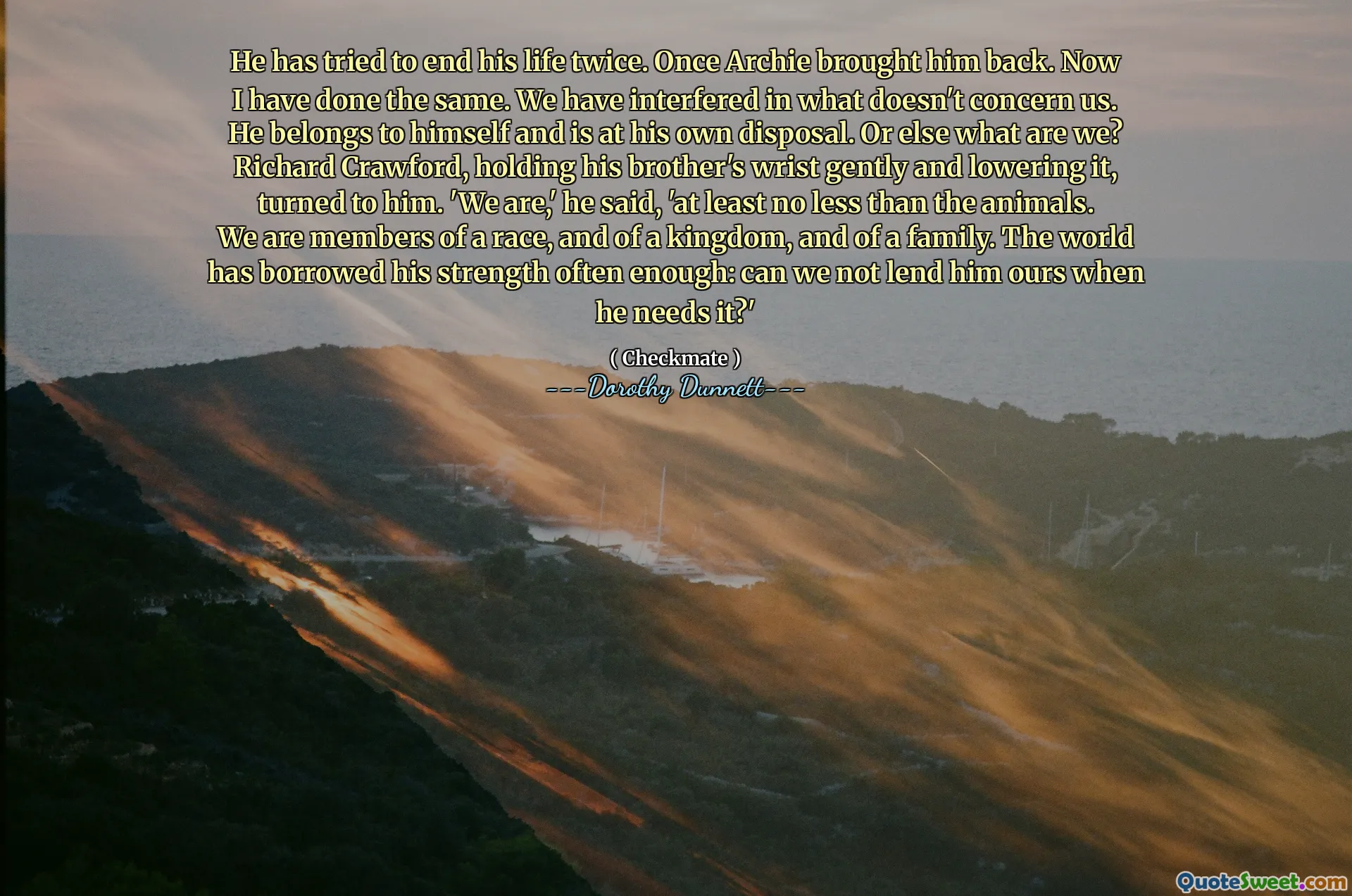
He has tried to end his life twice. Once Archie brought him back. Now I have done the same. We have interfered in what doesn't concern us. He belongs to himself and is at his own disposal. Or else what are we? Richard Crawford, holding his brother's wrist gently and lowering it, turned to him. 'We are,' he said, 'at least no less than the animals. We are members of a race, and of a kingdom, and of a family. The world has borrowed his strength often enough: can we not lend him ours when he needs it?'
This quote explores the profound themes of compassion, responsibility, and the intrinsic bond of family. The speaker reflects on the difficult situation of a loved one who has struggled with despair to the point of attempting to take his own life multiple times. Each rescue becomes a testament to the deep connection and sense of duty that the family feels towards him. It challenges the notion of individual autonomy, questioning whether we truly belong solely to ourselves or if we owe something to our kin and community. The comparison made by Richard Crawford emphasizes our shared nature with animals, recognizing innate instincts to protect and nurture members of our community. This humility about human superiority and our interconnectedness forces us to reconsider our reactions to suffering and hardship within our close circles. The quote suggests that moral responsibility isn't always about grand heroic gestures but often lies in quiet acts of compassion and being present for one another when it matters most. It acknowledges the burden of care but frames it as a fundamental part of human and familial identity. In a world where individualism can sometimes overshadow communal bonds, this reflection urges us to remember that we are intertwined, and our strength or weakness can influence those around us profoundly. Ultimately, the message advocates for empathy and mutual support in the face of life's darkest moments, reinforcing that our highest calling is to support each other through compassion and collective strength.





